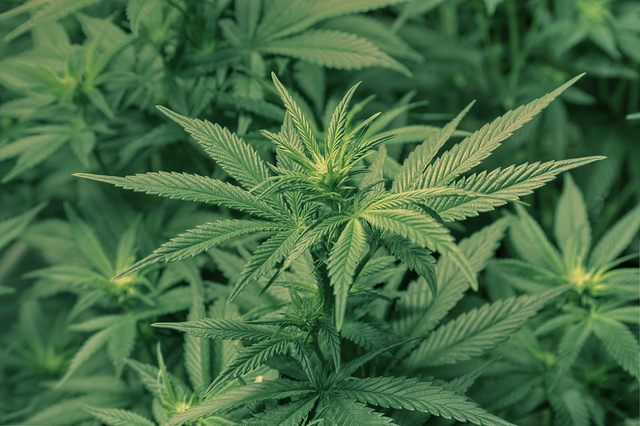When I think of a typical marijuana user, I admit I tend to stereotype. I see a young person, at home or with friends, smoking a large joint and having a good time. I don’t picture a grandma toking. Yet new research indicates that older people, in fact, are using cannabis more and more.
A new study found that the number of middle-aged and older adults using marijuana is on the rise. The analysis, based on the National Survey on Drug Use and Health, found that about 9% of adults between 50 and 65 had used cannabis in the last year, and about 3% of those 65 and older had. In 2013, those figures were, respectively, 7% and 1.4%.
Laws allowing for marijuana use – either recreationally or for medical purposes – are on the rise and can explain the increase. There is some medical evidence that marijuana can be used for a variety of medical conditions, such as pain, nausea from chemotherapy, multiple sclerosis, epilepsy and seizures, and this may also help to explain the increase in the older population.
Why Worry?
So what’s the big deal, you might ask? Since older people tend to take multiple medications, there is a risk of marijuana potentially interacting with those drugs and undermining their effectiveness. Yet because marijuana research is limited in the US, thanks to strict restrictions from the government, it’s hard to know exactly what those impacts are.
If older individuals – or any people, for that matter – are using marijuana for medical purposes, hopefully their doctors are aware of the medications being taken. However, if you are using marijuana and your doctors don’t know, you should tell them as soon as possible. They may be aware of potential marijuana-drug interactions.
Despite the lack of research on marijuana-drug interactions, there are certain classes of drugs that don’t mix well with cannabis. Because marijuana is very calming on the body, taking drugs that have sedating effects is a big no-no. For example, taking benzodiazepines such as Valium (diazepam) and Xanax (alprazolam), which are used for anxiety and insomnia, or muscle relaxants can lead to central nervous system depression. The same goes with using cannabis and alcohol.
Cannabidiol (CBD), one of the chemicals found in marijuana, is a big culprit for problems. Why? It can inhibit an enzyme in the liver that is used to break down medicines. When this happens, the medication ends up staying in the body longer, which can enhance the effects of drugs. CBD can even slow the breakdown of statin medications, used to lower cholesterol. That can increase the chances of side effects associated with statins, such as muscle pain.
There is also evidence that marijuana can impact the effectiveness of antidepressants. This is because marijuana may speed up metabolism of the antidepressant in the body. As a result, a person may need higher doses in order to get the same effect from the antidepressant.
More research is needed not only on the benefits and risks of marijuana as a medical treatment, but on cannabis-drug interactions. The trend in older people using marijuana makes the research all the more urgent. It’s time for the federal government to loosen restriction of cannabis research.
This article was originally published in medshadow.org
Here’s more from Just Care:











“Despite the lack of research on marijuana-drug interactions, there are certain classes of drugs that don’t mix well with cannabis. Because marijuana is very calming on the body, taking drugs that have sedating effects is a big no-no. For example, taking benzodiazepines such as Valium (diazepam) and Xanax (alprazolam), which are used for anxiety and insomnia, or muscle relaxants can lead to central nervous system depression. The same goes with using cannabis and alcohol.”
so…despite the lack of research, the writer still drew these conclusion?
I can however agree with the writers final conclusion despite his overtly negative tone (that echoes the AMA and the pharmaceutical industry)
“More research is needed not only on the benefits and risks of marijuana as a medical treatment, but on cannabis-drug interactions. The trend in older people using marijuana makes the research all the more urgent. It’s time for the federal government to loosen restriction of cannabis research.”
This article like other similar articles from this writer all convey the same negative tone towards recreational and medical use of marijuana. Going forward I will know in advance that anything that he writes with regard to marijuana use will almost certainly be tainted in the same manner.
Mr. Vaill, although there is a lack of concrete research (due to the US government restricting marijuana for scientific purposes), there is some medical evidence to support there are potential interactions between marijuana and prescription drugs. The purpose of the article is to make people aware that those interactions are possible. I do not feel my tone was negative, but rather cautionary. On a personal level, I actually believe marijuana has medical uses based on anecdotal evidence as well as research conducted outside of the US. However, more research on medicinal use of marijuana conducted in the US would likely allow for greater use of it for those purposes in this country as well as placate federal authorities.
…I have severe rheumatoid and osteoarthritis. I also am mildly diabetic. While CBD does not interfere with Metformin, it apparently does with a Statin. I also learned that Statins can often aggravate diabetes or even promote the onset of diabetes, so I kept wondering why do they often prescribe both together? Now there is a bad interaction.
I finally convinced my physician to take me off the statin because it was constantly making me nauseous even months after I started the regimen sometimes to the point I just wanted to lay back down. Once that was over, no more nausea.
Back to CBD. I use CBD (edibles and topical cremes) for my arthritis as it is more effective than NSAIDs without all the detrimental effects like damage to the digestive tract, kidneys, liver, and brain by long term steady use. Many prescription anti-arthritics have just as bad if not worse side effects. Given the choice I’d rather pay out of pocket for CBD medication than have Medicare foist drugs on me that just make me feel sick.
While not a “wonder drug” Cannabis (either form) has been seen to mitigate certain conditions and even send some into remission including serious ones like Crohn’s Disease and some forms of cancer). The reason it is so maligned is because it along it’s non-medicinal/psychoactive form, hemp, threatens the profits of Big Pharma and Big Chemical as well as being an easy target in the ridiculous “war on drugs” (which was actually instituted to discredit the anti-war protests and black power movement of the late 60s early 70s).